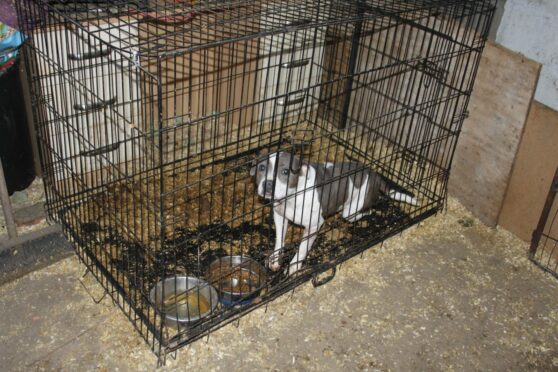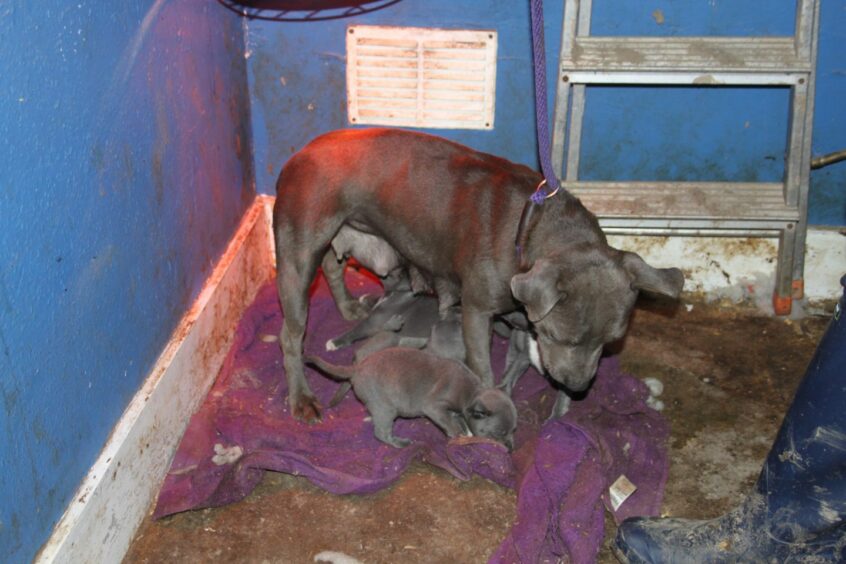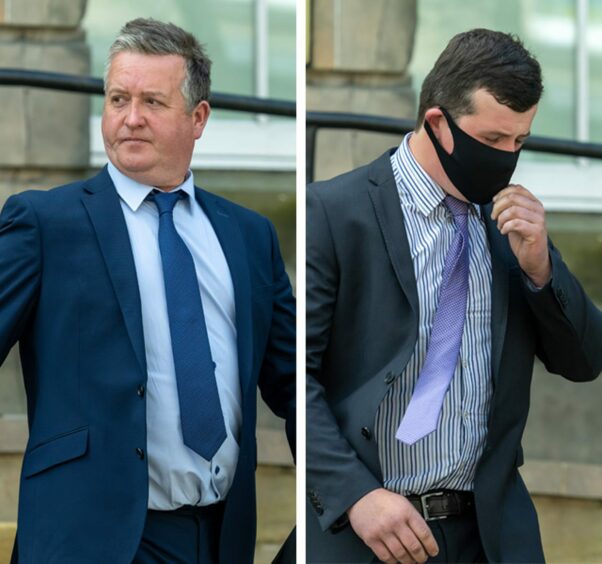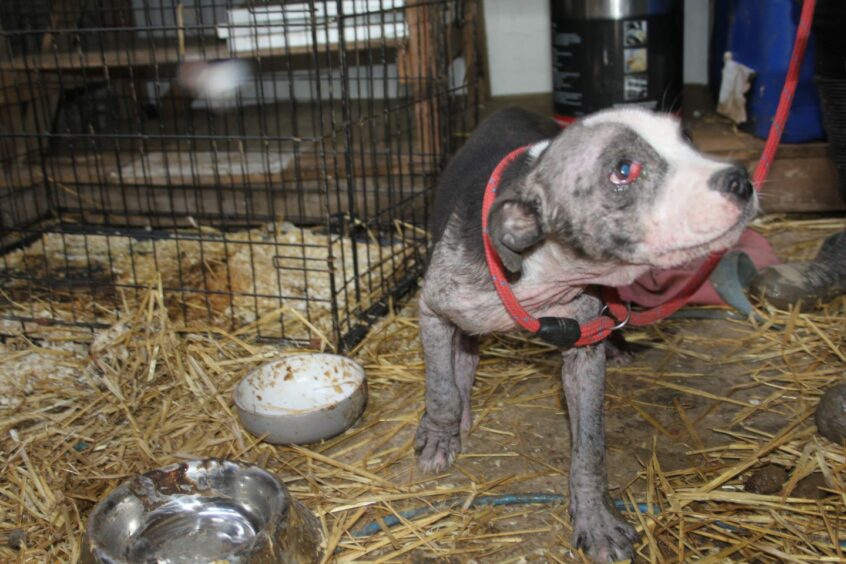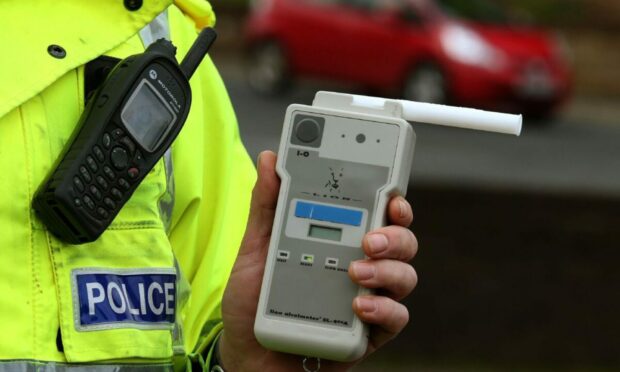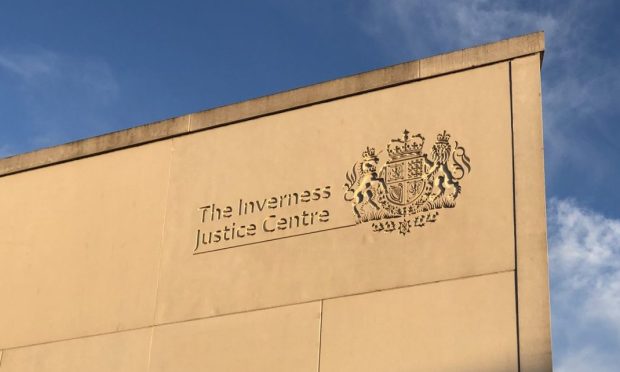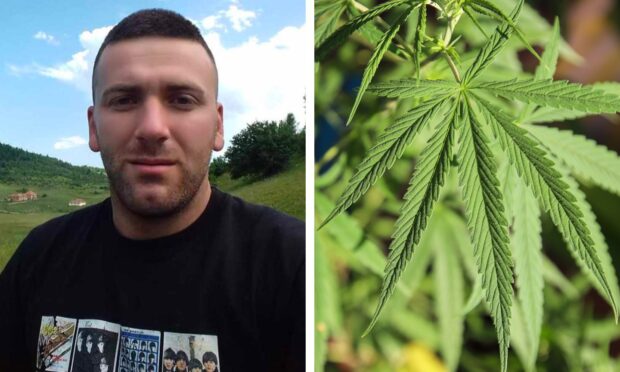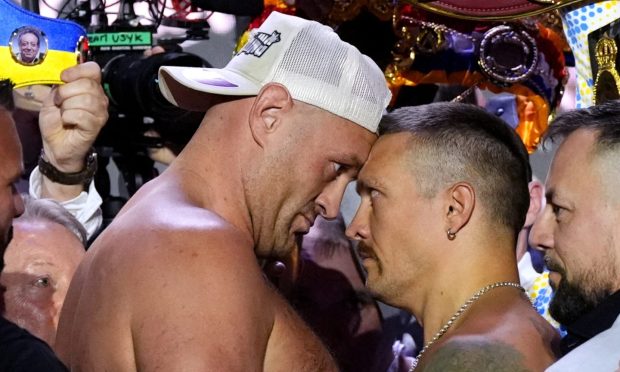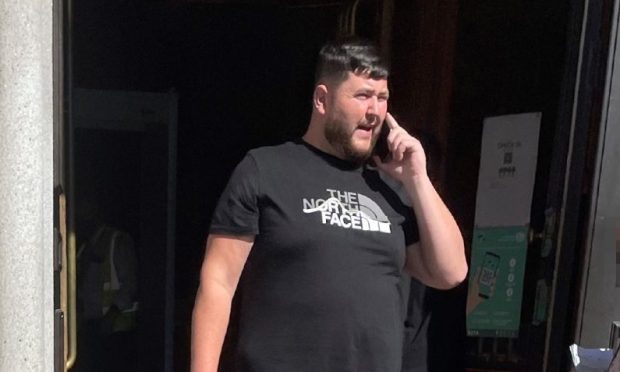More than 50 dogs had to be rescued from lives of squalor and neglect at a Moray puppy farm in what was the third high-profile puppy farm raid in the north-east in recent years.
Samuel Ronald Hessin, 49, and his son Samuel Arthur Hessin, 22, sold disease-ridden puppies to unsuspecting buyers for months from their “money-making operation” in Keith, which the SSPCA said showed “no care whatsoever” to the animals.
Everyone wants the perfect healthy puppy, but dogs bought from puppy farms like theirs are more likely to develop illnesses and have long-term problems with their behaviour later in life.
The worst part is a lot of owners won’t even know they’re buying from a puppy farm.
That’s why it’s important to recognise the signs so you can avoid puppy farmers like the Hessins.
What is a puppy farm?
A puppy farm is where multiple dogs are continually bred and the puppies sold.
They’re big business across the UK and are estimated to be worth £13m in Scotland alone.
Dogs are kept in poor conditions as the ‘breeders’ don’t care for their health and happiness.
Puppies are treated like a commodity, bred in huge numbers with no regard for their welfare.
And the conditions they are born in lead to serious medical and behavioural issues and, in many instances, death at just a few weeks old.
Some puppy farms will also have dogs brought in from other countries overseas. It’s illegal to transport young puppies, so there’s a high chance that this has been done illegally.
This means there’s no guarantee that the puppies have had any vaccinations or treatment against diseases we don’t have in the UK.
How to spot a puppy farm
To avoid contact with a suspicious dealer, Lesley Boyce an inspector with the SSPCA says you should always:
- Insist on visiting the puppy and seeing it with its mother at home to ensure that it has not been separated from its mother and its living conditions are good.
- Ensure the puppy has been not been separated from its mother until seven or eight weeks old.
- Treat any resistance by the breeder when arranging a visit as a red flag. A responsible breeder should be more than happy for you to visit more than once to make sure you and the puppy are a good match.
- Be wary of last-minute or constant changes of addresses or offers to meet in any layby.
- Be sure to ask the breeder lots of questions about the puppy, its mother and siblings and be reassured when they ask you questions about your lifestyle in return.
- Ask for genuine paperwork to prove vaccinations, microchipping, worming and any other health checks.
- Do not agree for the puppy to be brought to you or to meet anywhere other than the breeder’s facility to make the transaction.
- Do not let a breeder rush you. If you have any doubts at all, walk away and contact the SSPCA.
Is puppy farming illegal?
Puppy farms are illegal in Scotland and the rest of the UK.
Legislation known as ‘Lucy’s Law’ came into force in Scotland in September 2021.
It means that puppies and kittens can no longer be sold in Scotland by a third-party seller – such as a pet shop or commercial dealer – unless they have bred the animal themselves.
Instead, anyone looking to buy or adopt a puppy under six months must either deal directly with the breeder, from the place they were born with their mum or an animal rehoming centre.
How do I spot a genuine dog breeder?
Those running puppy farms are very different to reputable breeders.
If you are going to buy a puppy, do your research.
Don’t buy online or from someone where it’s impossible to verify where the dog is actually coming from.
Always remember, if you’re not sure it’s best not to take the puppy home on the day. A genuine breeder will usually understand and allow you to come back another day.
What should I do if I think it’s a puppy farm?
Walk away.
It can be hard leaving a puppy, especially if you think you’re leaving them in a puppy farm.
But buying a puppy from a farm won’t help the puppy, it will just make a profit for the breeders and mean they continue to breed many more puppies as a result.
How do I report a puppy farm?
It’s so important people looking to buy a puppy know the signs of illegal puppy trading and know how to report bad breeders.
- Report the ad. If you found the ad online, report the advert to the website it is on.
- Report licensing breaches. If you think they don’t have a licence but should, report them to the trading standards Advice Direct Scotland on 0808 164 6000.
- Report welfare issues. If you are worried that the dogs’ welfare needs aren’t being met, report them to the SSPCA by calling: 03000 999 999
- Call the police if you see cruelty to animals. If you directly witness any cruelty, ring the police on 101.
Visit the SSPCA’s dedicated #SayNoToPuppyDealers website and join the growing number of people who’ve signed the pledge to avoid buying from puppy farmers.
